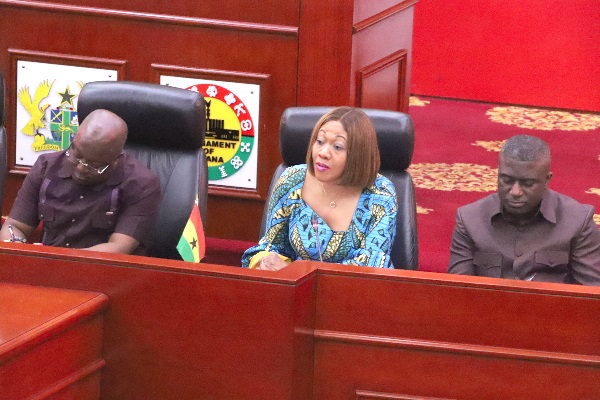Political equality is a fundamental premise of democracy, and since the late 18th century, there has been significant progress towards it in all leading democracies.
The importance of this ideal can be traced back to the direct democracy of ancient Athens (fifth and fourth centuries BC), where citizens were paid to attend the Assembly (Ekklesia) so that those who could not afford the loss of income by taking time from work for political exercise would not be excluded from participation.
Rather than having conditions that could potentially impede citizens’ exercise of their fundamental right to vote, in the modern era, voter registration laws and procedures further this core democratic ideal (political equality) and justice.
The attempt by the Electoral Commission (EC) to introduce a constitutional instrument (CI) that will make the new identity (ID) card issued by the National Identification Authority (NIA), the Ghana Card, the sole proof of citizenship and eligibility to register to vote, without doubt, would disenfranchise some Ghanaians.
Besides the fact that requiring only a single form of identification is limiting, not all Ghanaians have been able to acquire the said card.
Greater good
The ultimate importance and inviolability of fundamental basic rights (which includes the right to vote) not even for the sake of any so-called greater good is made compellingly by the late American political philosopher John Rawls in his classic, A Theory of Justice (1971).
It is arguably the most influential philosophic work on the concept of justice and equality from the 20th century onwards.
Rawls sets up a hypothetical situation as though it was the beginning of a society and rational individuals were about to enter a contractual situation to decide on the basic principles that would govern their society.
He calls this initial situation the Original Position.
To ensure impartiality in the selection of these principles, the individuals in the Original Position are assumed to be behind a Veil of Ignorance, that is, they do not know their status in society wealth, rank, social class, education, natural talents, abilities and so on.
Given this informational limitation, Rawls argues that the individuals will ultimately choose fair principles for the basic structure of their society.
Set of principles
Now, since the rationale behind individuals entering the contract in the first place is to negotiate for their personal advantage, the first set of principles they would agree to and prioritise would be those that border on the well-being and integrity of the personhood.
These can then be followed by principles governing the allocation of broader social benefits, such as income and wealth.
Therefore, the culmination is a two-tier principle of justice.
The first tier, as indicated earlier, would cover the equality of fundamental rights and freedoms for each person freedom from psychological oppression, physical assault and dismemberment, freedom from arbitrary arrest and seizure, and the right to vote and hold public office, among others.
Based on the prevailing logic, the rights under the first principle cannot be sacrificed for any so-called greater good.
For instance, more economic or social well-being cannot replace rights guaranteed by the first principle “no one has a reason to acquiesce an enduring loss for himself to bring about a greater net balance of satisfaction” (Rawls, 1971, p. 13).
The only instance where such rights can be forfeited would be to protect even far greater fundamental rights.
Full-proof system
So, the goal of keeping foreigners and minors off the voter register (as argued by the EC as the justification for the quest to use the Ghana card as the sole means of establishing eligibility) cannot supersede the risk of disenfranchising some Ghanaians (due to the manifestly inhibitive voter registration requirement that would result).
The ultimate objective of the EC should be to broaden political participation and deepen political equality by providing reasonable accommodation for all eligible citizens to register to vote. It must err on the side of justice.
The utilitarian benefit of having a foolproof system devoid of infiltration by non-eligible persons, though desirable, cannot justify the loss of the right to vote to even one eligible person no individual in the Original Position would agree to such an opportunity cost.
Guarantor system
The guarantor system is a measure to protect the sanctity of the right of everyone to vote, in the full spirit of political equality.
Even in an advanced country such as Canada, which has a long history of keeping a robust citizen database, the guarantor system is still in operation.
No eligible voter should be left behind.
A just electoral system includes institutional conditions that provide the accommodations necessary for every individual to fully exercise his/her fundamental right to vote.
It is important for the EC to remember that the right to vote is a fundamental right, not a privilege.
The writer is an Assistant Professor of Environmental Sciences and Studies at Stonehill College in the Boston area, Massachusetts, U.S.A.

